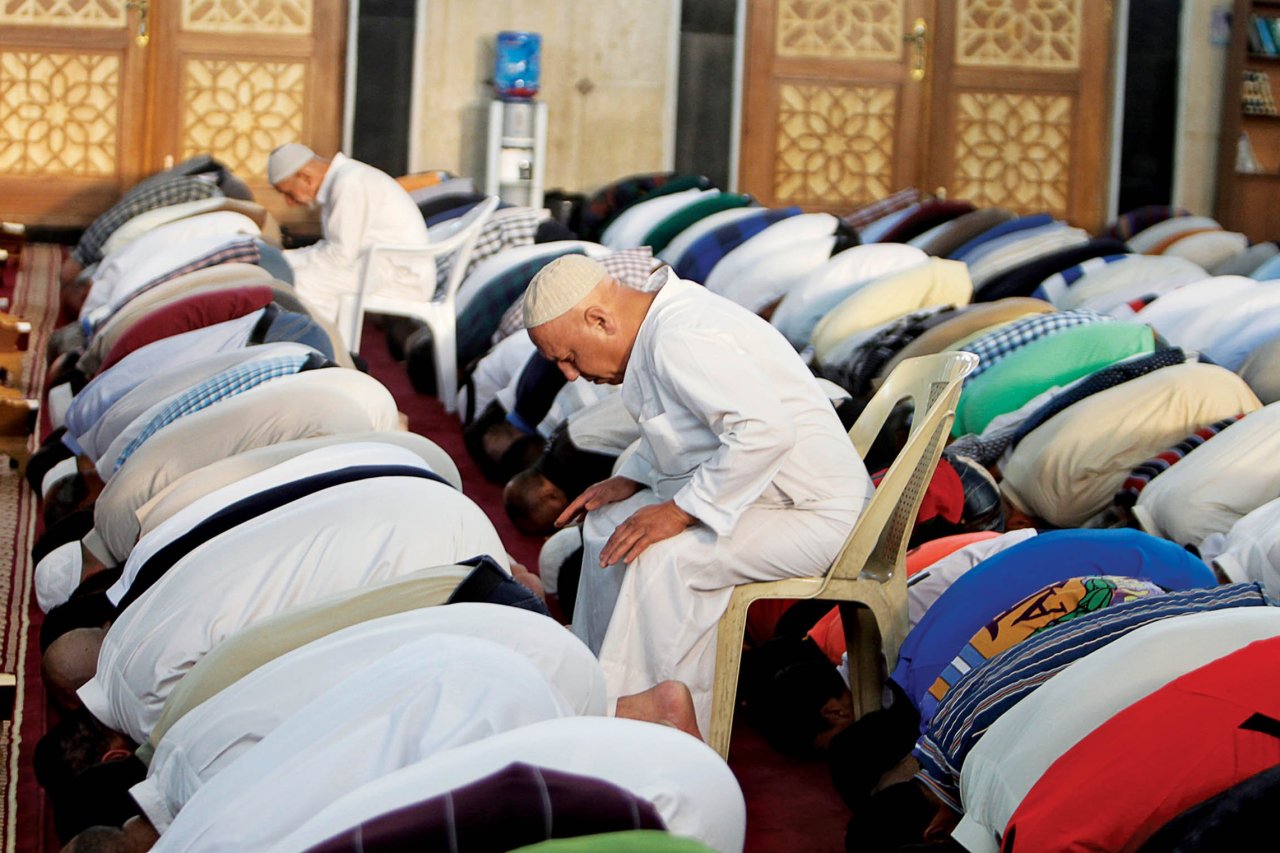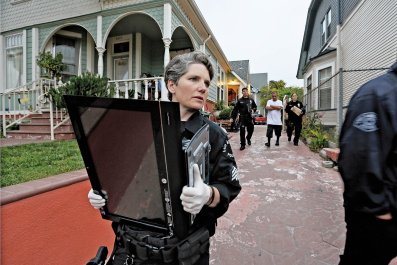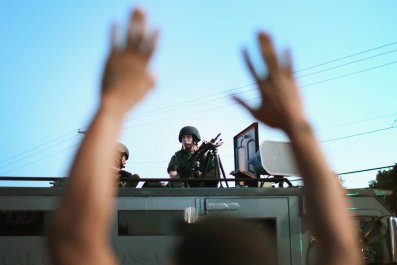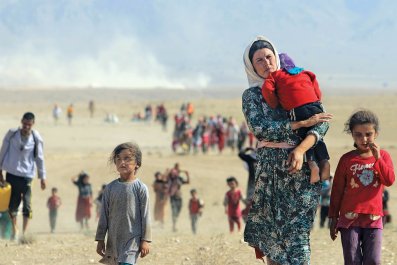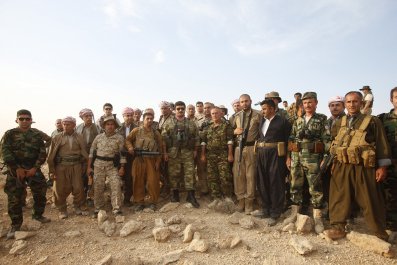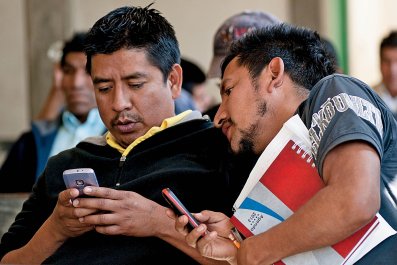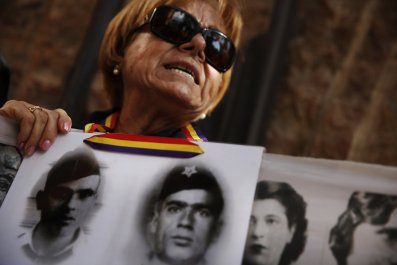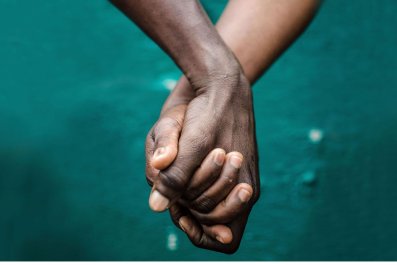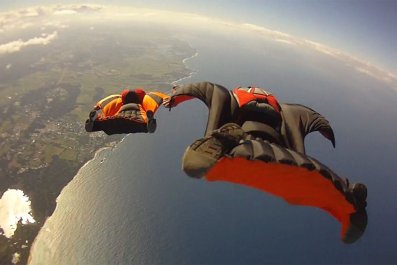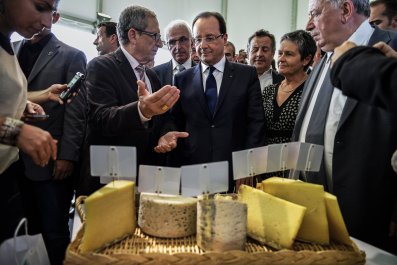Sometimes it pays to be counterintuitive. To save Iraq from total collapse and prevent it from turning into a terrorist haven, America may need to find ways to cooperate with Sunni groups opposed to the Sunni jihadis who now occupy vast swaths of the country's north. And yes, as odd as it may seem, ways do exist.
The jihadi group now known as the Islamic State (IS) has made major advances in Iraq since June. Its ever-growing cadre of mostly foreign Sunni fighters now surrounds Baghdad from nearly all sides and is threatening to capture the outskirts of Kurdish-controlled areas in the north.
But by far the most successful conquests by IS—formerly known as Daesh, or the Islamic State of Iraq and Syria (ISIS)—were made in western Iraq, where the foreign jihadis found allies among a local Sunni population that has been repeatedly snubbed and frustrated by the central Iraqi government of Nouri al-Maliki in Baghdad. (Al-Maliki withdrew his candidacy for a third term as prime minister on August 14.)
Can moderate Iraqi Sunnis join with the U.S. and other outside powers to repel the foreign extremists, as they did in the 2006-2008 surge led by General David Petraeus?
"Old contacts call me to say, We can beat these guys," a Western diplomat who was stationed in Iraq for several years told me. The diplomat, who spoke on condition of anonymity, said that many Sunni Iraqis abhor the jihadis and have allied with them only out of necessity because they felt alienated from al-Maliki's government.
To fight against IS, the diplomat added, these moderate Sunnis will need American arms and air support. But mostly, he said, they want better political representation in Baghdad than they have been given since the overthrow of Saddam Hussein, a Sunni, in 2003.
Since IS began conducting its murderous campaign of ethnic cleansing against Christians and Yazidis, Washington has begun to grapple in earnest with the menace these jihadis present not only to Iraq but to the whole of the Middle East and the West. In early August, dozens of American advisers landed in Iraq, and the U.S. Air Force has supplied aerial support to the Kurdish army—the peshmerga—to push back against the IS advance on Kurdish territories.
In addition, America has started delivering rifles and ammunition to the peshmerga, though all have declined, to date, to supply some of the heavier hardware the Kurds have long asked for, including armor-piercing weapons that can penetrate and destroy the American armored vehicles the jihadis inherited from the fleeing Iraqi army. By mid-August, the cooperation yielded results, as Kurds, with U.S. air support, said they captured the strategic Mosul Dam from IS fighters.
Many Iraq watchers now say that a similar effort at cooperation with local fighters must also be conducted in Sunni areas where IS is now based, as the peshmerga will not fight there. The Obama administration, however, is hesitant.
A former American official in Iraq said he had tried for four weeks to arrange meetings between U.S. officials and his old Sunni contacts in the Anbar and Nineveh provinces, such as the tribal leader Sheikh Ali Hatem al-Suleiman al-Dulaimi. His pleas were ignored. "I can't even get an answer, much less a yes," the former official said.
Zalmay Khalilzad, who was the American ambassador in Iraq from 2005 to 2007, said, "It would be a mistake to say that we have no contacts [at all] with the Sunnis." Several recent meetings between American officials and Sunni leaders were held in the Kurdish city of Erbil and in neighboring Jordan, he noted. But he said "the level of interaction and the intensity of contact and knowledge" is not what it was during Petraeus's successful surge.
That late stage in the Iraq War was marked by the defeat of Al-Qaeda in Iraq (AQI). Sunni Iraqis who had grown tired of the AQI jihadis fought hard against them, and eventually, with American help, they chased them out of the country. Later, in Syria, where the civil war was raging, these same AQI foreign fighters reorganized, refortified themselves and turned themselves into ISIS, eventually returning to exploit the divisions in al-Maliki's deeply fractured Iraq.
The final defeat of AQI by Petraeus was made possible only by the close cooperation between U.S. troops and the Iraqi Sunnis. At that time, Americans on the ground developed deep ties with the Sunni leaders, and those close bonds still exist.
"We knew them, we had these [U.S.] forces all over, so they've developed relations" with the locals, said Khalilzad. Of course, such relations can hardly be reprised today, since no one expects the U.S. to send troops back to Iraq. It would be hard to establish alliances in the Sunni areas that are similar to the ones the U.S. enjoyed before, he said.
President Barack Obama has pledged to help the new Iraqi government of Haider al-Abadi, al-Maliki's replacement and a Shiite, in its fight against IS. Since American troops are not expected to join the battle again in Iraq, Khalilzad said, Iraqi allies can become the "boots on the ground" in America's proxy fight against the jihadis. "And boots on the ground, in this sense, means not only peshmergas and other Iraqis but also sympathetic [Sunni] people," he said.
But to ensure that Iraq's Sunnis turn against IS, their political grievances against the government in Baghdad must first be addressed. Obama has been urging an "inclusive government" in Baghdad, and as a first step he recently helped push al-Maliki aside behind the scenes.
Both Sunnis and Kurds have long accused al-Maliki, a Shiite closely allied with Iran, of practicing exclusionary, highly partisan politics, saying he has denied funds to their communities and a seat at the top table when important decisions about Iraq's future are made. Now, however, top Baghdad officials can be heard repeating Obama's line about "inclusive government."
"Absolutely, there needs to be more representation for the Sunnis in Baghdad," Mohamed Alhakim, Iraq's U.N. ambassador, told me. "But the Sunnis also need to help themselves and unify. When the Kurds come to Baghdad, they speak with one voice. The Sunni representatives, each one of them represents a different family, a different tribe."
"This is a very cynical statement," said Feisal Amin al-Istrabadi, a law professor at the University of Indiana. In fact, "Maliki and those closest to him had a policy to Balkanize the Sunnis and to fight tooth and nail with anyone who represents a nonsectarian view of the country," he said.
"And that includes me," Istrabadi added. As one of the drafters of Iraq's initial set of inclusionary laws in the immediate aftermath of Saddam's overthrow, the American-born Iraqi was the country's deputy U.N. ambassador from 2004 to 2007. "Now I'm Iraq's permanent representative to Indiana," he said jokingly. "There's no room for us in the puzzle that Maliki has created."
Under al-Maliki, said Amatzia Bar'am, the head of the Iraq program at Haifa University in Israel, "Iraq's $100 billion annual oil revenues have not reached the Sunnis or the Kurds." This fact, among much other evidence of al-Maliki's exclusionary reign, ensured that even Obama, who throughout his tenure "wanted nothing to do with Iraq," finally understood that al-Maliki needed to be pushed aside, Bar'am said.
But Baghdad's political problems may take months or years to sort out. And, as IS advances, "time is not on our side," said Khalilzad, the former U.S. ambassador to Iraq.
As the IS menace grows, Khalilzad said, Obama must start talking to the American people and to Congress about more involvement in Iraq, and perhaps name a special envoy there.
"We all say it's a serious problem, but the level of effort is not proportionate to the level of the problem," Khalilzad said, adding that "kicking the can down the road" or "containment" of IS's advances may lead to a much larger crisis soon.
That may include a total collapse of Iraq. As Istrabadi sees it, "we're not going to just break into three regions, Shiistan, Sunnistan and Kurdistan. At best, we'll be like Syria is right now. But more likely we'll be like Somalia."
To prevent that, he said, al-Abadi will need to form an inclusive governing coalition soon while simultaneously fighting IS.
"And that," he said, "is a herculean task."



